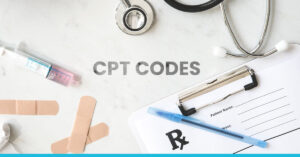When a patient decides to see a doctor for their health condition, they expect a highly qualified and competent healthcare professional to take care of their health. After all, no one would entrust their health and wellbeing in the hands of an unqualified medical practitioner. But what are the basics to ensure that your doctor is experienced and has the necessary knowledge required to practice medicine? This is where medical credentialing comes in.
Using a thorough standardized process consisting of data collection, primary source verification, and committee review processes, the medical credentialing procedure allows patients to confidently place their trust in the hands of their healthcare provider, knowing that they meet the standards of quality medical care set out across the country.
But even if you have a team of extremely qualified professional physicians who possess the right merits and expertise, without enrolment, you are limiting the doors of revenue streams that are available to you. This is why medical credentialing is so important. It allows medical practitioners to deliver care to a greater pool of patients, increasing their overall revenue potential.
In this article, we take a look at why credentialing is important for healthcare organizations and how it is integral to the success of your medical practice.
What is medical credentialing?
Medical credentialing is a meticulous process used by insurance payers and healthcare organizations to verify and assess a provider’s qualifications including their education, training experience, malpractice coverage, career history, residency, licenses, and any specialty certificates. This process seeks to maintain the highest standards of quality medical care for the benefit of the patients by ensuring that healthcare providers are properly trained and certified and have the necessary medical expertise required to provide medical care to them.
Medical credentialing isn’t a one-time process. To make sure that a healthcare provider’s credentials are always up to date, the process of medical credentialing is carried out several times throughout a medical professional’s career to re-evaluate their credentials regularly.
Why is credentialing important?
The medical credentialing process dates back to as far as 1,000 BC when physicians in ancient Persia had to treat three heretics before they could treat any patients. If those three heretics lived, then the doctor was considered qualified to treat anyone else. While today’s medical credentialing process is quite different (and for obvious reasons), but the underlying theory remains the same: to ensure that medical professionals are competent enough to provide medical care.
While credentialing may seem like just a paperwork task, it holds significant value for both, patients and healthcare practices. The advantages of medical credentialing play out in so many ways – from instilling confidence in your patients to enhancing your pool of patients, medical credentialing delivers a competitive edge to your practice that sets you apart from the rest of the crowd.
Let’s take a look at why medical credentialing is super crucial.
Ensures quality assurance
Medical credentialing is a critical process that assures your patients that they are receiving quality medical care. Through a meticulous review of their qualifications, medical credentialing ensures that only those who have demonstrated the competence to perform their specialties are granted the privilege to practice.
This allows patients to trust their healthcare provider which ultimately enhances their health outcomes because when patients trust their doctors, they are more likely to follow their medical advice such as making changes in their diet, exercising or trying a new treatment plan. Patients who trust their doctors are also much more likely to stay with their chosen healthcare facility, which also enhances the practice’s patient retention rates.
Ensures patient safety
A recent study by John Hopkins Medicine estimated that over 250,000 people in the US die every year due to medical errors, making it the third leading cause of death in the country. This worrying statistic is what compels leaders in the healthcare industry to seek improved standards of competency. Credentialing helps to protect patient safety by ensuring that only those practices and physicians who have the necessary experience and skills are allowed to provide medical care, thus lowering the risk of medical errors that occur due to incompetent providers.
Prevents revenue loss
One of the most significant reasons why credentialing is important is because it is a necessary process for insurance reimbursement. Insurance carriers do not offer reimbursement for services provided by healthcare providers that are not credentialed. Insurance payers such as Medicare and Medicaid wish to see proof of medical credentialing before they can allow your staff to engage with any patients.
Any negligence in this situation can result in a loss of thousands of dollars of revenue from delayed or denied reimbursements. Practices that aren’t credentialed also won’t be able to accept patients that are covered by health insurance, which would lead to a loss in thousands of dollars of potential revenue as well.
Enhances your practice’s reputation
More patients than ever before are doing their research before committing to a practice/physician. This can be in the form of checking online reviews or doing background checks which place practices under extreme scrutiny. Taking the time out to fill the necessary paperwork to show your credentials to all your potential patients helps to boost your online reputation and assures your patients of your bona fides, with irrefutable documentation.
A lack of current and valid credentials may lower the confidence of potential patients in your practice.
Assists in hiring
One of the primary advantages of medical credentialing is that it enhances the hiring process of medical professionals. Usually carried out at the time of employment, medical credentialing involves a thorough examination of a healthcare provider’s experience, education, training, and other merits. This ensures that the professional that is being hired by the organization is qualified for the position and competent enough to perform the necessary tasks in the job description. Additionally, the credentialing process is required by insurance companies before they can become a member of the insurance carrier’s network.
Protects healthcare organizations from lawsuits
Credentialing ensures that healthcare providers are complying with all regulations and statutes with minimal risks of getting into hot water with the law. The medical credentialing process consists of a review of any malpractice claims against a healthcare provider. This allows healthcare organizations to be careful when hiring a new provider to protect them from legal trouble.
If a lawsuit is filed against a practice, the law will take into consideration whether that practice has chosen to maintain standards of quality care and carry out the best compliance practices. If the provider is not medically credentialed, the practice will likely not only lose the lawsuit but also lose its hard-earned reputation.
See Also: 6 Steps To Streamline Physician Credentialing Process
The bottom line
While medical credentialing is a labor-intensive and time-consuming process, it is vital to the success of any medical practice. Dedicated to safeguarding the health and wellbeing of the patients, the medical credentialing process can give your practice an edge over your competitors and protect your organization from lost revenue, compliance violations, and unwanted lawsuits.




No comment yet, add your voice below!